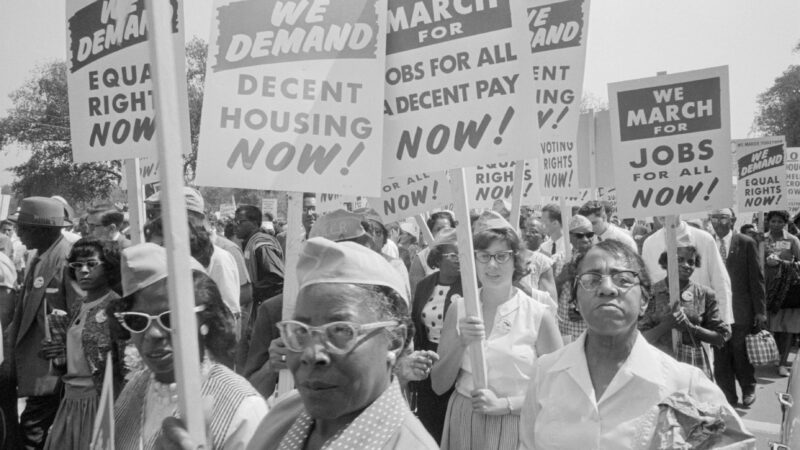Update
A Universal Basic Income +
10. 10. 2017
Two of the most unpopular ideas in American political discourse: UBI and reparations.

No child should live in poverty, and in the richest democracy in the history of the world, every kid should have a shot at a life where they can thrive and have their basic needs met.
Yet just 5 miles from here, either west or south, 2 out of 3 black kids are born into, and grow up in poverty. I believe that is wrong and Un-American.
Two of the most unpopular ideas in American political discourse: UBI and reparations.
“We believe that the federal government is responsible and obligated to give every person employment or a guaranteed income.” That’s from Plank 2 of the 1966 Black Panther Party’s 10-point platform. Two years later, Dr. King advocated for a guaranteed income in his final book.
I come to UBI from a very different political tradition: black politics with a focus on race and political economy. It’s this tradition that led both Dr. Martin Luther King Jr. and the Black Panther Party to argue for full employment and a “guaranteed income” for African Americans specifically and all Americans more than fifty years ago. They understood we can walk and chew gum at the same time. Five decades later, it’s about time the rest of us caught up to their vision.
Black workers today face the exact same dual crisis of high unemployment and low wage work they did fifty years ago. The Black unemployment rate is twice that of white workers at nearly every level of education. Thus, one need not be only concerned with future trends to speculate that a UBI would help black Americans today, especially those who continue to be locked out of access to labor markets at disproportionate levels.
We should imagine a robust UBI that advances racial and gender justice while simultaneously addressing the ills of 21st century capitalism. In fact, there is a model of UBI which is not only acceptable, but preferable to common proposals: The Universal PLUS Basic Income.
It is identical to most UBI proposals but includes a pro-rated, additional amount for black Americans over a specified period of time. The Universal PLUS Basic Income draws on the concept of “targeted universalism” in designing social policies. Such a proposal would take into account the historical and cumulative disadvantages of income, wealth and inheritance afflicting black communities, and it would recognize that potential changes in the nature of work will disproportionately hurt black Americans. It would effectively function as reparations, in a grand bargain with white America: All would benefit, but those who suffered through slavery and continuing racism in the economy would benefit slightly more.
Why? More importantly, today’s wealthiest Americans benefit either directly from African Americans’ disadvantaged position in our political economy, or indirectly as a result of the cumulative benefits to our nation from centuries of exploiting black bodies. For the first 25 decades of this country, we relied on racially-based slave labor to build the wealth of this country. For the next 10 decades after the Civil War, we relied on “slavery by another name”: Jim Crow. It’s been only 5 decades since the Civil Rights Movement in the long sweep of American history. 25–10–5: we can all do the math. Black Americans helped build the co-owned wealth of our nation (our infrastructure and banking, legal, and patent systems) and were denied access to our share of it (land, sky, and other natural resources). Even if African Americans receive an equal income with whites, tapping wealth hoarded by racist means and distributing it universally effectively amounts to targeted redistribution.
Most importantly, a campaign around a racially inclusive UBI is a potential opportunity for creating the political will within Black communities and across racial and ethnic divides in American politics to win. Public opinion around economic redistribution has always been higher among black Americans relative to the rest of the population, and initial polling and focus groups around support for a UBI in the U.S. suggests this pattern still holds. Thus, a UBI+ proposal could become a bridge to the increasingly salient demand for reparations and reinvestment emerging from the Movement for Black Lives. And, if nothing else, it serves as a stronger starting progressive bargaining position in political fights over UBI.
